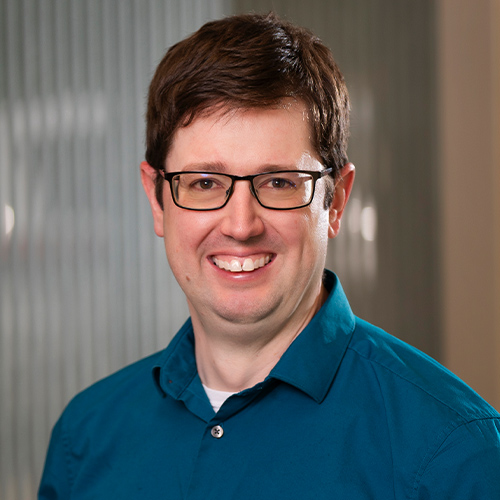Expert

Paul Hackbarth
Actions
Type
Topic
- Membership
Laura Warren-Hughes remembers when the hospital she used to work for built a new facility, and all of the patients and staff were moved in a three-hour period. Two of the patients even gave birth, one before the relocation and one shortly after.
“It was some of the hardest work I’ve ever done, but the rewards were so amazing,” said Warren-Hughes, who now serves as the Missouri Hospital Association’s director of maternal quality.
She is one of several nurses on MHA’s team who we are proud to honor during National Nurses Week. May 6 marks the beginning of Nurses Week that culminates on May 12, Florence Nightingale’s birthday. Nightingale was a British nurse, social reformer and statistician who is credited as the founder of modern nursing.
We asked our nurses at MHA about what led them to a nursing career, what people should know about nurses, which moments were most memorable and what advice they have for future nurses.
Their responses were inspiring, heartfelt and a powerful reminder of the strength and dedication of those within the nursing profession.
Why did you decide to become a nurse?
For Keri Winegar, MHA’s manager of substance use programming, the choice was simple.
“My parents were both nurses, and I have always wanted to work in a field where I can help others,” she said.
Warren-Hughes said she also chose to pursue a nursing career because of family.
“My husband experienced a severe cardiac issue … I saw how much of an impact nurses made on their patients, and I wanted to do that, too,” she said. Her mother, an obstetrics nurse, also influenced her decision.
Jessica Stultz, MHA’s director of clinical quality, had a different reason for wanting to become a nurse.
“I’ve always felt very passionate about helping people,” Stultz said. “I am a bit of an adrenaline junkie with an empathetic side, and nursing was the perfect career choice for me.”
What should people know about nurses?
There are different types of nurses; not all nurses provide direct patient care at the bedside.
“You can work in a clinic, in an office or even in the field doing research,” Winegar said.
Stultz agreed, adding that myriad opportunities are available in the nursing field. There are a variety of jobs and paths nurses can take, including advanced degree opportunities.
“Nursing is what you make of it,” Stultz said. “There’s flexibility and you do impactful work.”
Josette Bax, vice president of clinical operations with the Hospital Industry Data Institute founded by MHA, emphasized that nurses are partners in the care continuum.
“Nurses work collaboratively with physicians and other medical professionals as part of a team to provide comprehensive patient care,” Bax said. “Their frequent interactions with patients enable them to closely monitor their conditions and promptly report any significant changes to the care team. In fact, registered nurses often make their own judgments regarding a patient’s diagnosis and outcome goals.”
What are your favorite memories as a nurse?
Bax remembers caring for a patient who was hospitalized for 18 months with a heart pump. Then, one day, her patient finally matched with a donor and received a much-needed heart transplant.
Winegar said she remembers a lot of her patients — both the ones who “left too soon and the lives we saved.” She can still recall their faces and their appreciation.
“Those are the memories that keep me going,” Winegar said.
One of Stultz’s favorite memories was working with fellow nurses and all of the experiences they went through together.
“Even though I haven’t worked with them for 13 years, I still consider them part of my family,” Stultz said.
What advice do you have for future nurses?
Warren-Hughes offered this advice for students pursuing a nursing career: When you graduate from nursing school, your learning days are not over.
“Don’t expect to know everything in the first year or two of nursing. Do expect to be committed to lifelong learning,” she said.
The job of a nurse can be tough at times, according to Bax. Nurses work long hours, weekends and holidays, and it can be difficult when their patients aren’t improving.
“It is worth it though. You will make a huge difference in people’s lives,” Bax said.
Winegar advised individuals who are considering becoming a nurse to stay focused on the passion and purpose that connected them to nursing.
“When others are mean or frustrated with you, just remember why you chose to become a nurse and continue to follow your heart,” Winegar said. “I’ve witnessed the saddest days of human lives, but I’ve also witnessed the best, most glorious days of human lives. Nursing is one of the best career paths, in my opinion, even with the negatives that sometimes come with it.”









